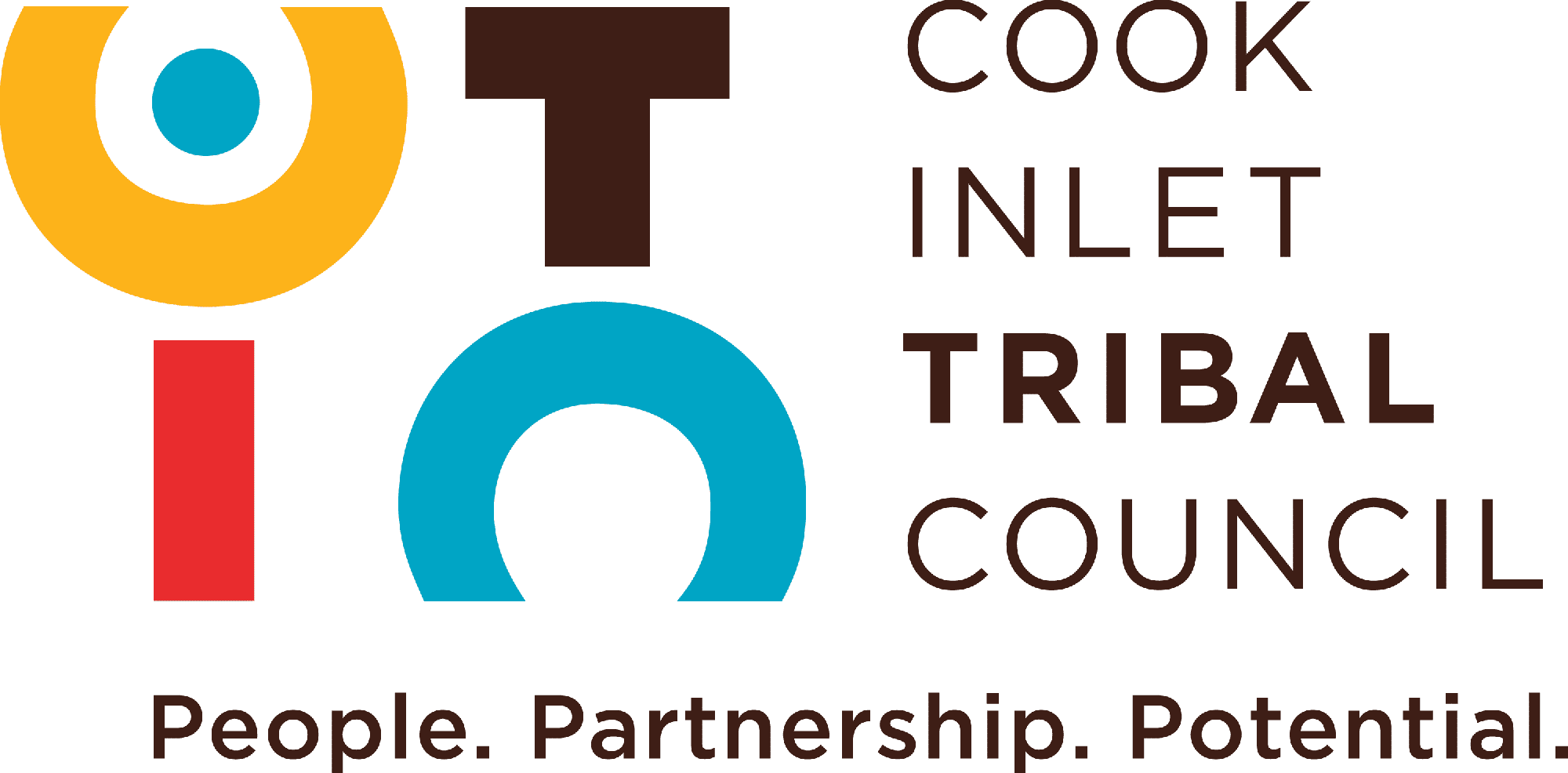18 Jul Support Brings Success
How finding a “village” is helping one family connect to each other, their community, and their culture
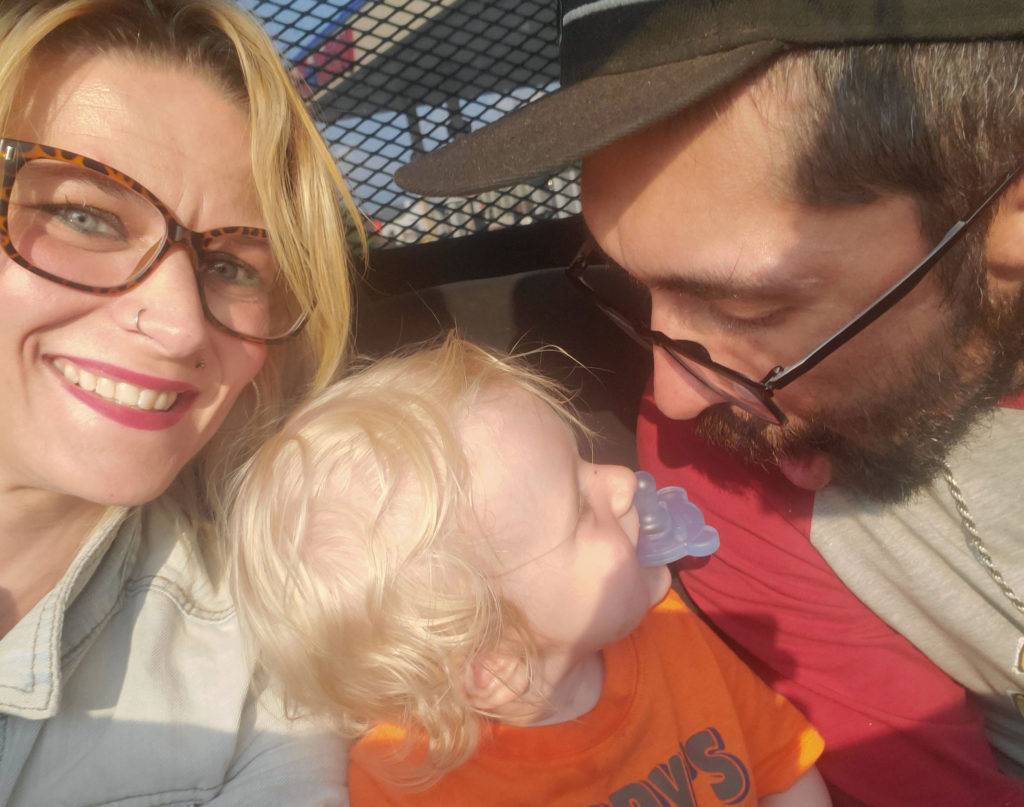
Daniel Smith has faced homelessness, jail, losing then reuniting with his son, and unemployment. So when a relative told him that CITC might be able to help him during some hard circumstances, he was skeptical.
“We weren’t expecting much,” Daniel admitted. “Most of the time, when something like CITC comes along, it takes a decade to get in.”
Imagine Daniel’s surprise when someone from CITC’s Clare Swan Early Learning Center (CSELC) called right away and offered his son a spot in the center’s Yup’ik language immersion classroom.
Imagine his further shock when he discovered that CSELC’s support for families doesn’t stop at simply caring for and educating children from six weeks to three years old.
“Our mission is to provide support for the entire family unit—because having good, reliable childcare and early learning isn’t enough. When we look at the entire family, we see their needs, and we make a plan together to help them work toward success,” said Victoria Gonzalez, a family case manager at CSELC who worked closely with Daniel and his wife, Tia.
Family Night
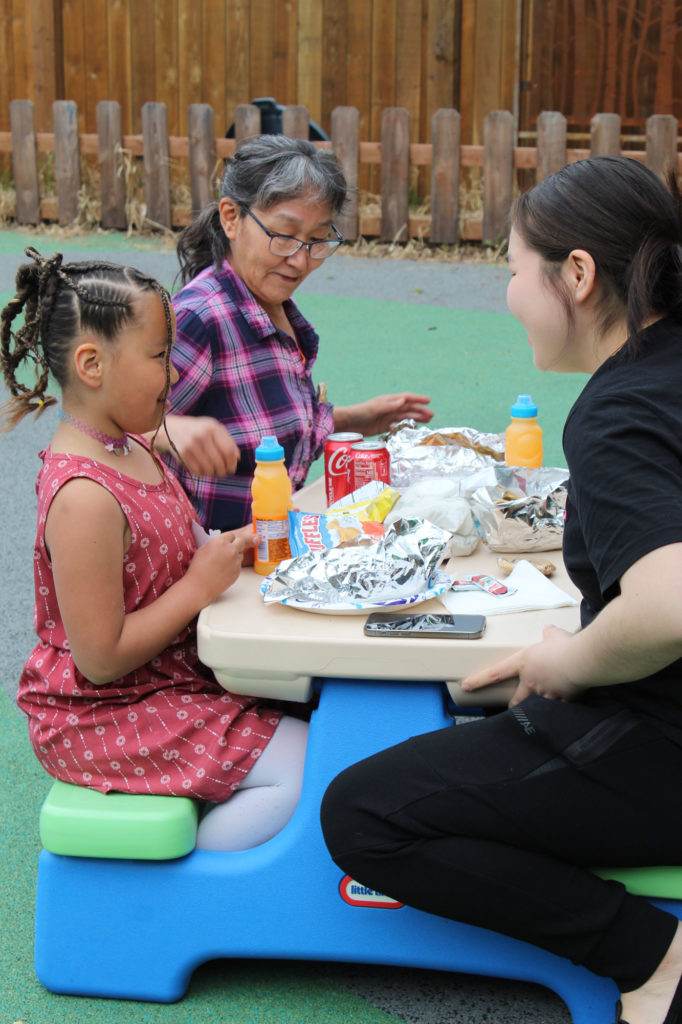
It took some time, but today Daniel’s son, Raiden, has settled into the Yup’ik classroom, where children ages six weeks to three years old are immersed in language-learning.
“Sometimes now it’s hard to get him out of there because he’s playing and having fun!” Daniel said.
Raiden’s not the only one having fun while learning at CSELC. Soon after he was enrolled, the entire Smith family began attending CSELC Family Nights. Launched as a means to meet a regulation required of Head Start agencies by the U.S. Office of Head Start, CSELC’s monthly Family Nights have transformed into a crucial outlet for families to connect.
“A lot of our families had their children during the pandemic,” Victoria pointed out. “Through Family Nights, they can meet other parents and build networks of support. It’s nice to have other people you can count on.”
For the Smiths, who were living at Safe Harbor when their son started at CSELC, Family Nights gave them an opportunity to bond as a family and to re-learn how to be together after Raiden was returned to them from foster care.
Activities for Everyone
Each month, CSELC hosts a Family Night that offers activities for children and their parents/guardians and siblings, a food item, and cultural connections. Representatives from other CITC programs also attend Family Nights to answer questions about other supportive services and to immediately connect parents with additional resources.
Parents also walk away from Family Night with take-home kits designed to engage their kids. In July, Family Night attendees received a “playdate” card deck—a collection of cards with an activity for kids to do on one side, and on the other, a conversational topic for parents to chat about. In August, the take-home kit will feature a daily planner, a sample frozen dinner parents can make on a busy night, and family dinner conversation cards.
“Our goal is to give families experiences they can have together,” Victoria said. “For example, it’s one thing to set up a playdate, but it’s another thing to actually do it and feel confident. Hopefully items like the conversation cards can help.”
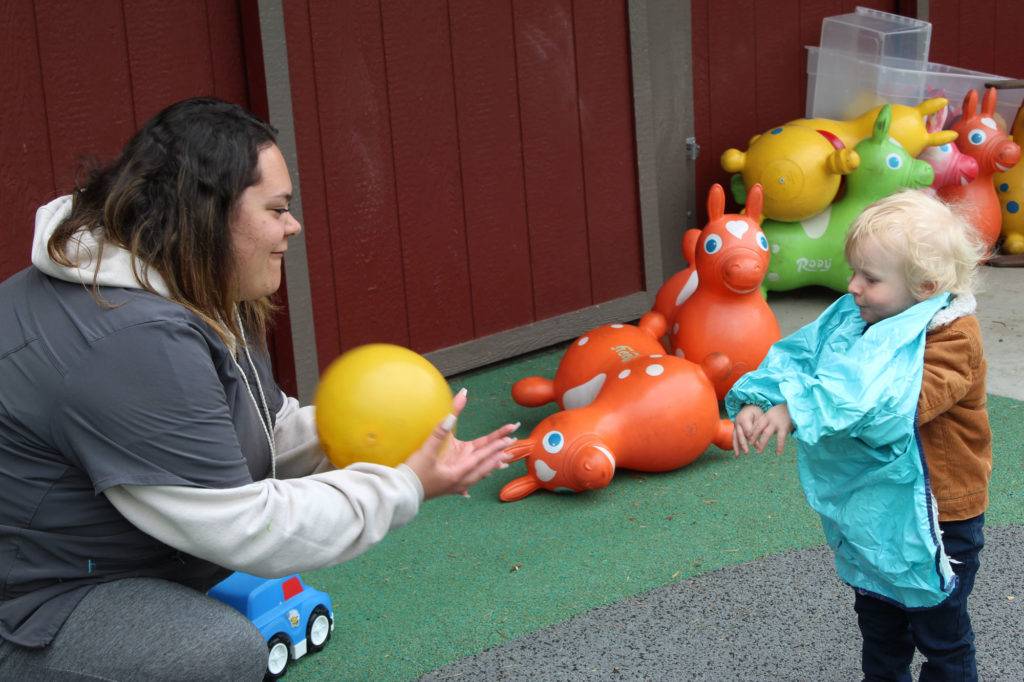
Parenting Practice
For Daniel and his wife, both of whom have experienced addiction, Family Night has provided a valuable example. “We can interact with other parents in real life. We’re really learning how to be with each other without substances. It’s not just learning about ourselves; it’s learning to be together.”
In addition to Family Night, Daniel and Tia also completed CSELC’s Tsil’qu parenting classes. Over the course of nine weeks, parents attending Tsil’qu explore topics ranging from adverse childhood experiences that affect how they parent, parenting techniques, and tools to examine how the way they were raised influences their own parenting.
“The parenting classes let us see other types of parents and gave us a chance to talk with them and think of different ways to handle parenting,” Daniel explained. “Parenting, it changes daily. It’s a difficult process. With the classes, I’ve enjoyed getting feedback and gaining more knowledge about myself and how to help my family.”
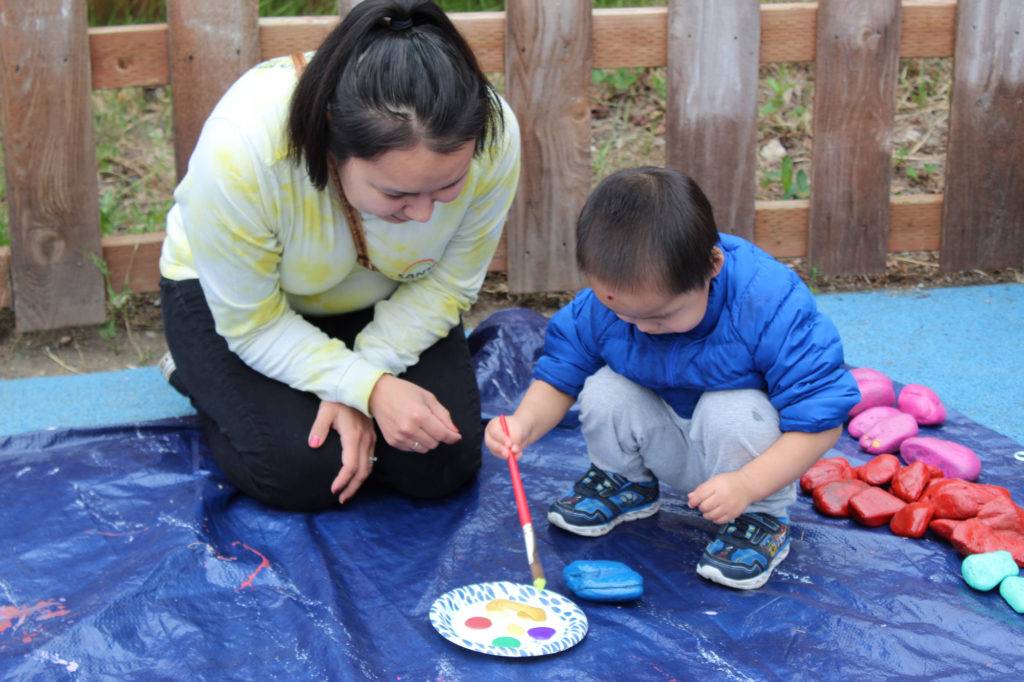
In addition to gaining skills through attending class, parents also earn incentives: Attendees are given a $50 Amazon gift card for each session. It’s an incentive that encourages parents to give the class a try—and once they do, they tend to keep coming back.
“Parenting is so intense,” said Victoria. “The classes offer a safe space for parents to explore their own feelings. We know our families at CSELC are doing their best, so any way we can support that will pay our whole community forward.”
Overcoming Barriers
Thanks to the support they have found at CSELC, Daniel and his family are thriving. With Raiden at CSELC during the work day, both Daniel and his wife have found jobs that allowed them to rent their own apartment. Daniel is two years sober now, and his family is meeting their goals.
“We wanted to change our life,” he said. “Without CSELC, we had a lot of barriers. CSELC stuck their necks out for us. The help we got has been amazing.”
Learn more about CSELC and other child care support at CITC.
